In Khyber-Pakhtunkhwa: The lensman and the lashkar
K-P has really been the centre of attention ever since the War on Terror broke out. But what is there to see?
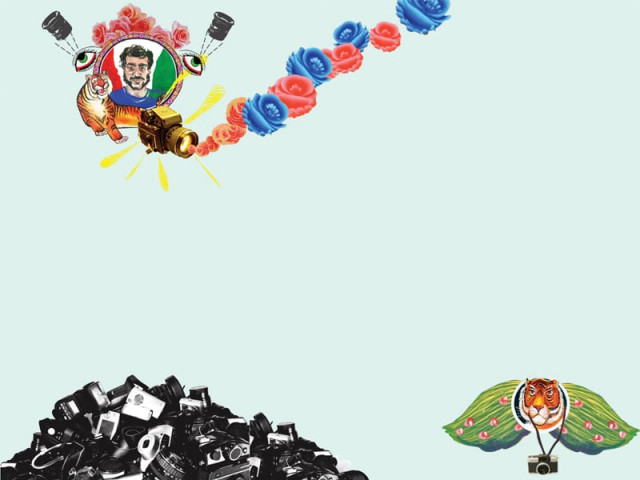
In Khyber-Pakhtunkhwa: The lensman and the lashkar
“They, in fact, devote themselves to protecting their families and people, risking their lives in a very generous commitment,” Berruti points out.
He should know, because he spent the better part of 50 days with these civilian militiamen. They showed the same spirit of generosity by making themselves available and giving him a lot of time despite their demanding duties.
One of them was Said Bacha, a 75-year-old tribal elder, who played a decisive role in ousting the Taliban from the Swat Valley. Bacha, who lives in Maban village near the border with Dir district, is a marked man as far as the Taliban are concerned, but his stance against militancy remains unchanged.
Berruti believes that disinformation has been spread about tribal lashkars — that its members are extremists themselves and act like mercenaries — when this is simply untrue. “My goal with this work was, in fact, mainly to make the situation of tribal people in Pakistan more widely known and understandable to a wide audience,” he says, explaining how he tackled this year’s Carmignac Gestion programme which required him and other photojournalists to spend time in the border areas between Pakistan and Afghanistan.
It is part of a lashkar member’s destiny to “fight the Taliban and protect their people at whatever cost.” From their point of view, he says, this is not a duty they can shirk or a job they can refuse, because they feel that “their lives are in the hands of God.”
The Italian lensman is clearly moved by the predicament of lashkar members. He believes they have lived through extraordinary hardship in the wake of their struggle against the Taliban insurgency. Their circumstances worsened following the flood last year. Despite that, he says, the government didn’t give them enough support to recover. For many of them, the challenge of rebuilding their lives is now a bigger one than fighting militancy.
Over the past few years, Berrutti has covered some of the bigger headline-grabbing events in Pakistan. From the super flood of 2010 to the targeted killings in Karachi and from the battle against militancy in Swat and elsewhere to the movement for the restoration of the superior judiciary, Berruti has found himself in the thick of things. The images he has captured of these stories are deeply evocative, showing the everyday valour of his subjects.
“I feel close to Pakistani people, having spent the past three years in the country, but what they are suffering does not make me happy at all,” he said, dispelling the impression that the country has been in any way a happy hunting ground for him. However, he acknowledges that he is keen to share Pakistan’s stories with the world.
“I think Pakistan is often misunderstood [by the world], and I feel this is as much a danger for its people as well as for those outside Pakistan.”
Berruti is impressed by “the spirit of brotherhood” in the country which he says helps people live through calamity after calamity. “There are a lot of things Pakistanis could remind and teach the rest of the world if the West just made an effort to understand them better,” he says.
Of all the news events he has covered, Berruti says nothing has been scarier — not even the threat of a Taliban attack on a tribal lashkar — than the drive-by shootings in Karachi. “Karachi has fallen prey to this dramatic wave of violence and trying to cover these events by getting as close as a photographer has to be, you can find yourself in a number of very dangerous and scary situations,” he recalls.
Once, Berruti and his aide, Israr Ahmed, even had a close brush with death — an experience that changed his outlook on life quite a bit.
For Berruti, last summer’s devastating flood in the country was somehow inexplicable. “I perfectly remember that this huge mass of water was not preceded by the massive storms one could expect to see before such a disaster. For some reason, the dams were full at the beginning of the monsoon season,” he says. But even though he saw only a bit of the destruction, he is convinced that it was extreme nevertheless. Too many places were inaccessible and impossible to reach. Water had cut roads and travelling was extremely difficult. He is sure that had the authorities taken some measures beforehand, the severity of the disaster could have been lessened and the suffering of the people could have been eased.
Published in The Express Tribune, Sunday Magazine, August 14th, 2011.

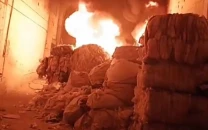
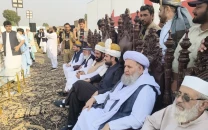
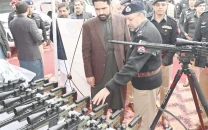
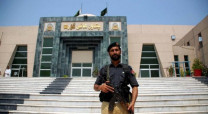
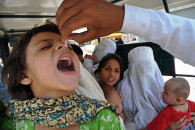
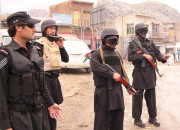












COMMENTS
Comments are moderated and generally will be posted if they are on-topic and not abusive.
For more information, please see our Comments FAQ